The presence of Bank of Credit and Commerce International (BCCI) in Sierra Leone was important in continuing its expansion in the west coast of Africa, the country’s capital, Freetown, was an important port city for trade, commerce and banking where European, Lebanese, and Indian interests were predominant.
Country information
Sierra Leone, officially the Republic of Sierra Leone, is on the southwest coast of Africa, bordered by Liberia, also a former colony of freed slaves, to the southeast, Guinea to the north and east, and the Atlantic Ocean to the west and southwest.
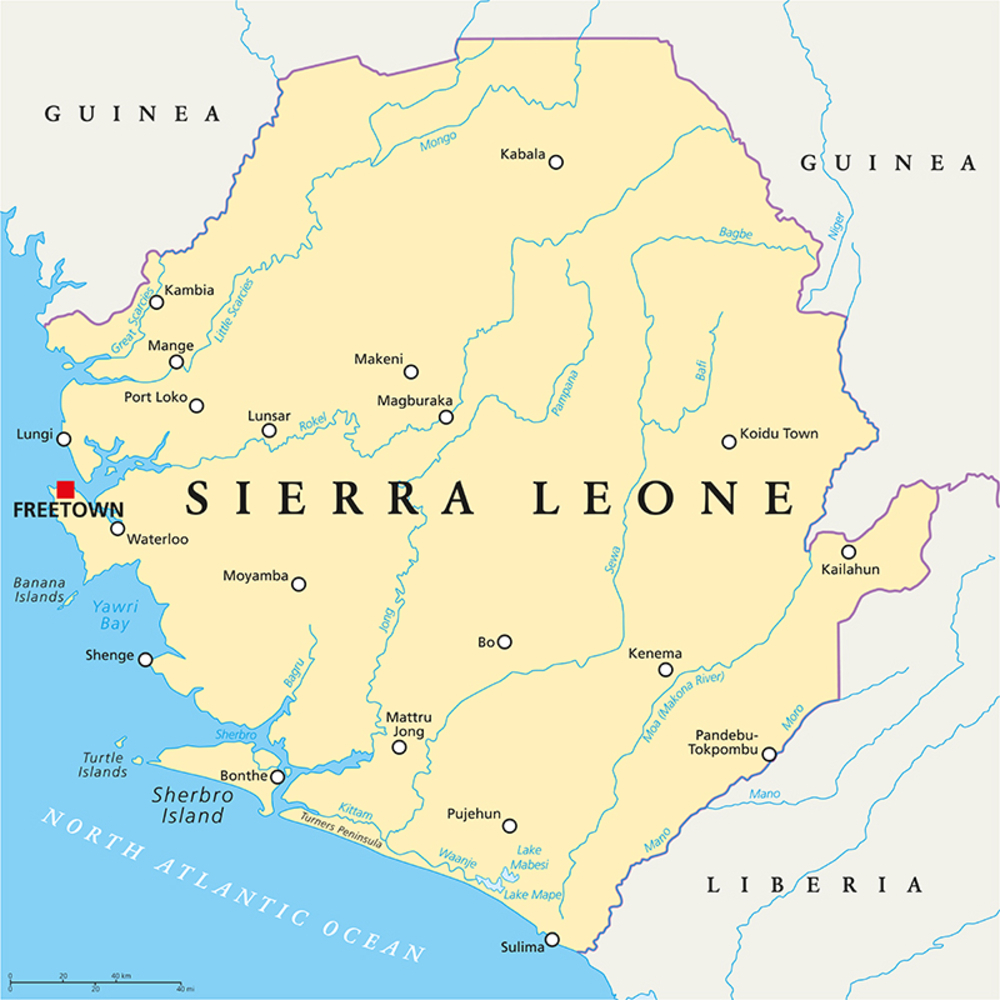
History
Sierra Leone was established in the 18th century by British abolitionists and philanthropists as a place in West Africa for settlement, named Freetown, for returning and rescued Africans taken as slaves after the abolition of slavery.
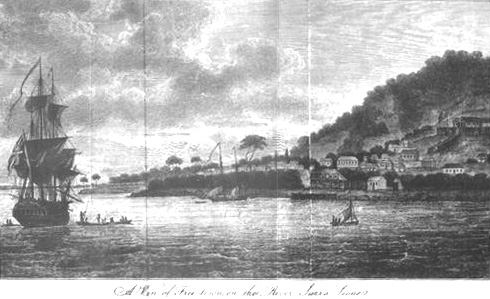
The earliest Europeans to arrive in Sierra Leone were the Portuguese on slaving expeditions down the West Africa coast. By 1495 they had built a fortified trading post on the coast. The Dutch and French also started arriving. The Europeans started using Sierra Leone as a trading point for slaves.
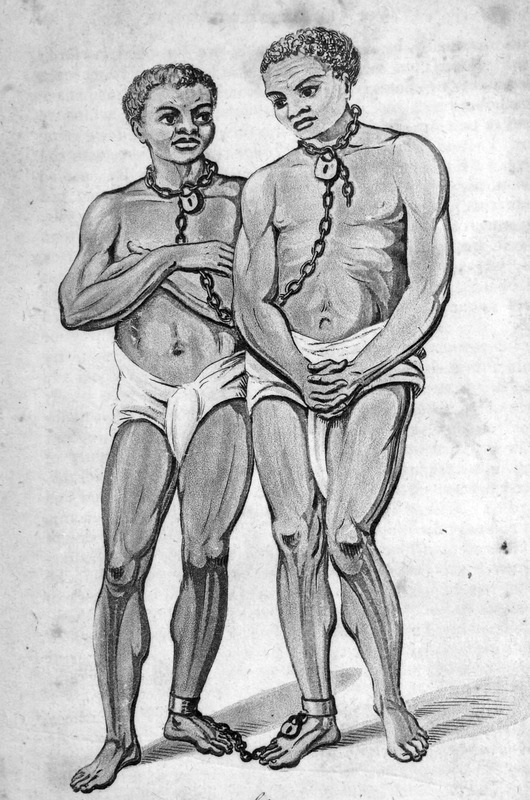
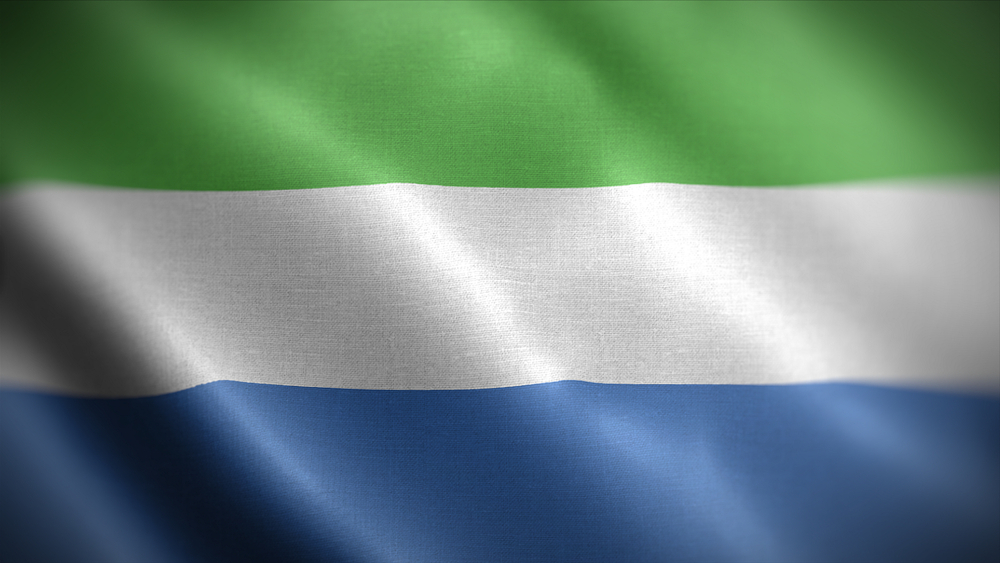 In 1562, the British transported 300 Africans enslaved by them, to the Spanish colony of Santo Domino and the West Indies where they were sold.
In 1562, the British transported 300 Africans enslaved by them, to the Spanish colony of Santo Domino and the West Indies where they were sold.
Sierra Leone became a Colony and Protectorate of the British (informally British Sierra Leone) from 1808 to 1961. The colony gained independence from the British on 27 April 1961 with Freetown as the capital.
Sierra Leone has the largest natural harbour on the African continent, allowing international shipping. Major port cities are Freetown, Bonthe, Sherbo Island and Pepel.
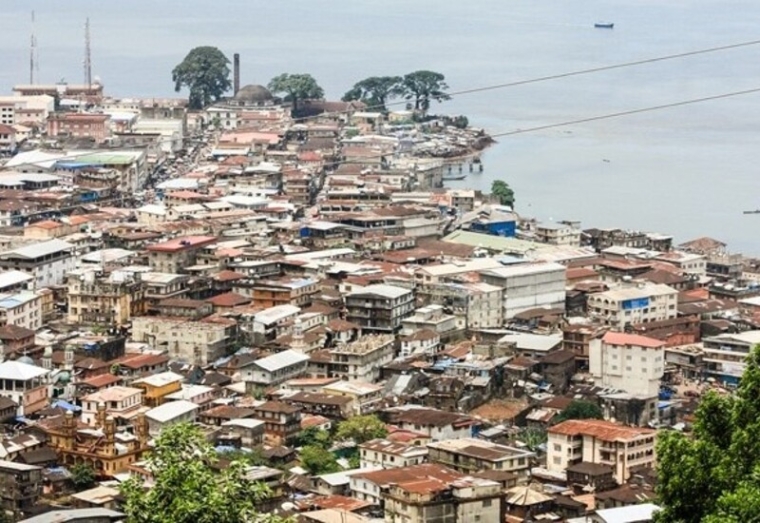
Population and Language
The population of Sierra Leone was around 3.3 million in 1980 that had grown to around 4.2 million in 1991. The local population of descendants of freed slaves who are influential, was enhanced by the Europeans and presence of Lebanese and Indian traders in urban centres.
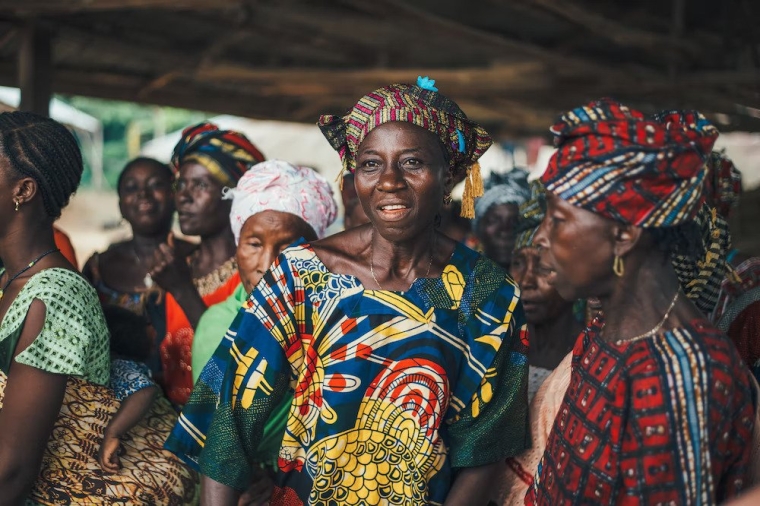
English is the official language used in administration, education, banking and foreign trade.
Economy
Sierra Leone is a small, poor, and relatively open economy. Agriculture and mining are the principal sectors.
Important crops in the Agriculture sector include rice, cassava, oil palm, sugarcane and cocoa, coffee.
Sierra Leone is one of the largest producers of unfinished diamonds that continue to be mined by private companies owned by Europeans or managed by them.
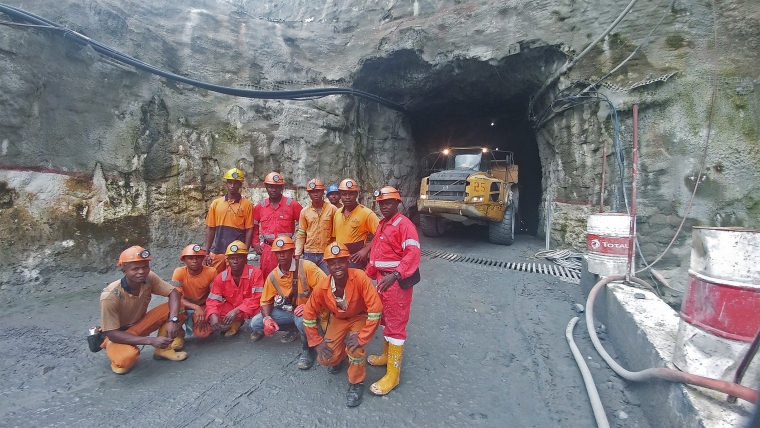
Sierra Leone also has deposits of gold and is one of the world's largest deposits of bauxite, a main source of aluminium and rutile, a titanium ore used in high-tech alloys, and also used as a colouring agent in production of glass, porcelain, and ceramics, and to add colour to steels and copper alloys, and valued for its usefulness as pigmentation in paints, due to its ability to retain its colour, over time.
Bulk of the country’s exports are minerals primarily diamonds, and few other primary mineral products, most of which go to Belgium, the U.S.A., and Switzerland. Agricultural produce, primarily coffee and cocoa, and are also exported.
Imports became more diversified and include machinery, vehicles, fuel, and food products. Ivory Coast (Cote d’Ivoire), Canada and Nederland, where BCC have branches, are the main source of imports.
BCCI in Sierra Leone
There were five commercial banks in Sierra Leone. Two of these,Barclays Bank of Sierra Leone Ltd. (renamed Rokel Commercial Bank Ltd.) operating since 1917, and Standard Bank Sierra Leone Ltd. operating since 1894, both subsidiaries of large British banks with head offices in the United Kingdom.
The third commercial bank, Sierra Leone Commercial Bank Ltd., was operating since 1973.
A fourth bank was Bank of Credit and Commerce International, which opened in 1978.
A fifth bank opened in November 1982 owned by a wealthy Freetown businessman in partnership with foreign interests.
BCCI branches in Sierra Leone
BCCI opened two branches, in Freetown (the capital and main port of the country), and Kenema, the third largest city and the capital of the Eastern Province and centre of the Alluvial Diamond Mining Scheme Area.
Both branches provided regular banking services and attracted deposits from local population and businesses. The branches also had considerable dealings with local merchants and traders in financing their business, as well assisting the government agencies with the country's exports and imports.
For imports, BCC would generally open letters of credit on behalf their import customers that promised to effect payment to the exporters when the foreign exchange was allocated to the branches by the Bank of Sierra Leone (central bank). This was because of the growing foreign exchange shortage in the country.
Foreign exchange was allocated by means of a simple queue, known in Sierra Leone as the foreign exchange pipeline. Banks placed orders with the central bank, and the orders were met as foreign exchange became available.
Since 1971 China became interested in extending aid to Sierra Leone. Chinese state-owned companies bid for many projects that included the construction of two stadiums in Freetown and two important bridges. BCC's presence in China ensured that the bid bonds and performance guarantees required in Sierra Leone with any local financing were provided by BCCI Sierra Leone branches.
Freetown
Freetown is a major port city on the Atlantic Ocean and is located in the Western Area of the country. After independence in 1961 Freetown was the capital of Sierra Leone. It is also the country’s major urban, economic, financial, cultural, educational and political centre, as it is the seat of the Government.
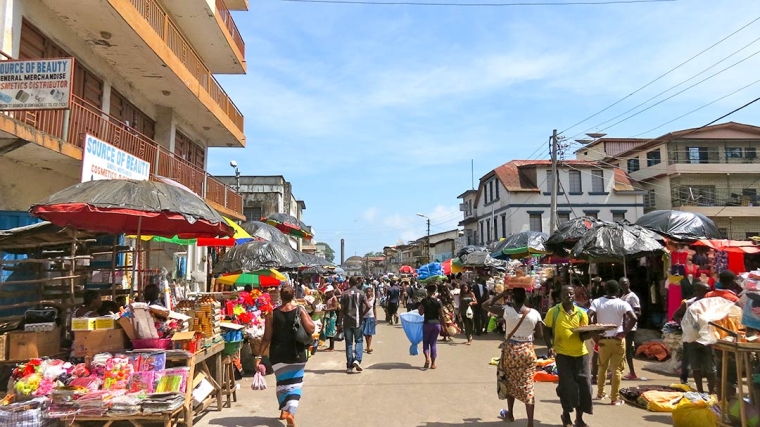
BCCI branch in Freetown was opened in mid-1978 and located at:
Sparta Building, 10 Wilberforce Street
P.O. Box 359. Freetown
Tel: (23222) 22790
Fax: (23222) 22300
Telex: 322 BCCI SL
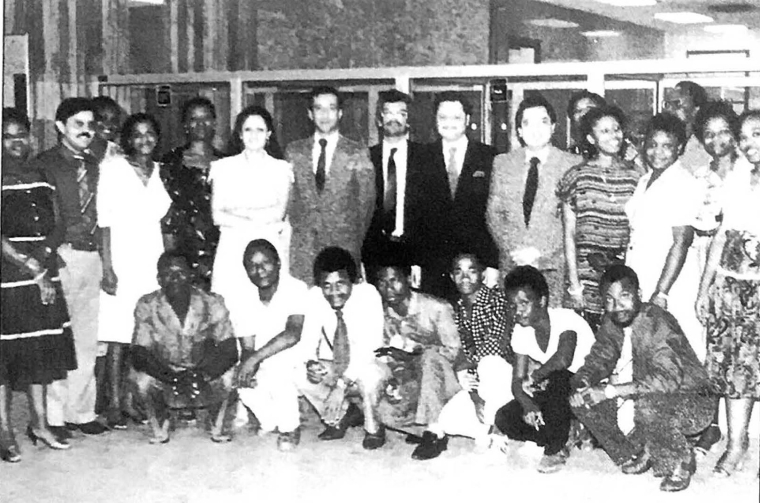
In 1984 BCC officers in Freetown, hosted a special dinner in honour of delegates from the Bank of China visiting West Africa. His Excellency the Chinese Ambassador in Sierra Leone, Her Excellency the Pakistan Ambassador in Ghana, Miss Salma Kishwar Jan, and Mr Moazzam Mirza, BCC's country manager in Sierra Leone, were all present at the dinner.
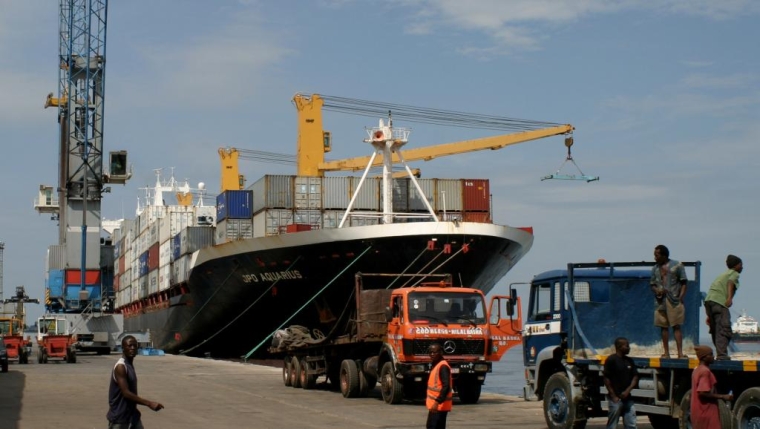
Kenema
Kenema is a town city in south eastern Sierra Leone. It was the centre of the Alluvial Diamond Mining Scheme Area and the site of the Government Diamond Office (1959), concerned with the export of diamonds. It was also an important agricultural market town and the centre of the timber industry of Sierra Leone. The area produces cocoa, coffee, palm oil and kernels, furniture, and wood carvings that are sold and exported though Freetown.
BCCI branch in Kenema was opened on 15 November 1979 and located at:
PO Box 65
Kaisamba Terrace
Kenema
Tel: (2342) 603/4
Fax: (23222) 22300
Telex: 322 BCCI SL
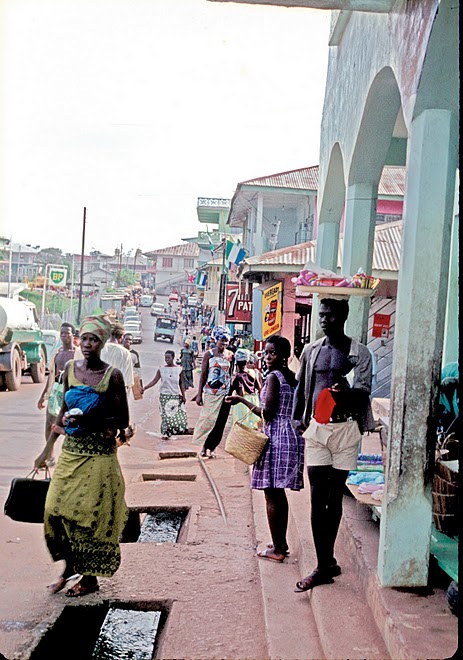
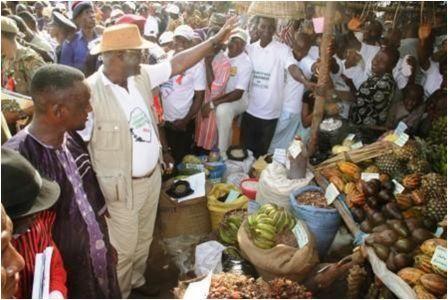
BCCI closure
On 5 July 1991 the Bank of England and other regulators in the west decided to freeze BCCI Group's assets and abruptly shut down BCCI's operations worldwide.
The priority of the governments and central banks in some countries was to protect their people and the local operations of BCCI continued in a different name after the assets and liabilities were acquired by private investors or another bank.
BCCI's branches in Sierra Leone were closed on 8 July 1991 when the Central Bank of Sierra Leone intervened. Several groups indicated interest in acquiring BCCI's operations in the country. No further information is available.
According to a World Bank 1984 Report on Sierra Leone, "commercial banks' liquidity/ ratios are well above the 40 percent required by the BSL (Bank of Sierra Leone, the central bank). ("Liquid assets" are defined to include cash, deposits at the BSL, Government bills, and domestic private bills.) The banks are all well within their assigned credit ceilings."
(Report No. 4457-SL, Sierra Leone, Financial Sector Study, February 8, 1984, West Africa Region, Programs I, Division B. Document of the World Bank.)
The BCCI Group majority shareholders considered the abrupt action by western central banks to shut down BCCI in 1991 was unjustified when they already had detailed discussions with the Bank of England and other regulators on a restructuring plan and would have injected further capital, if required.
In a 24-page report not made public but sent to some 60 central bankers worldwide, the United Nations Center on Transnational Corporations said that by simply shutting down the 70-nation banking network that financed international trade of $18 billion a year, the economic damage fell hardest on countries like Nigeria, Bangladesh and Zambia, where B.C.C.I. was an important institution. (New York Times, Feb 5, 1992)
